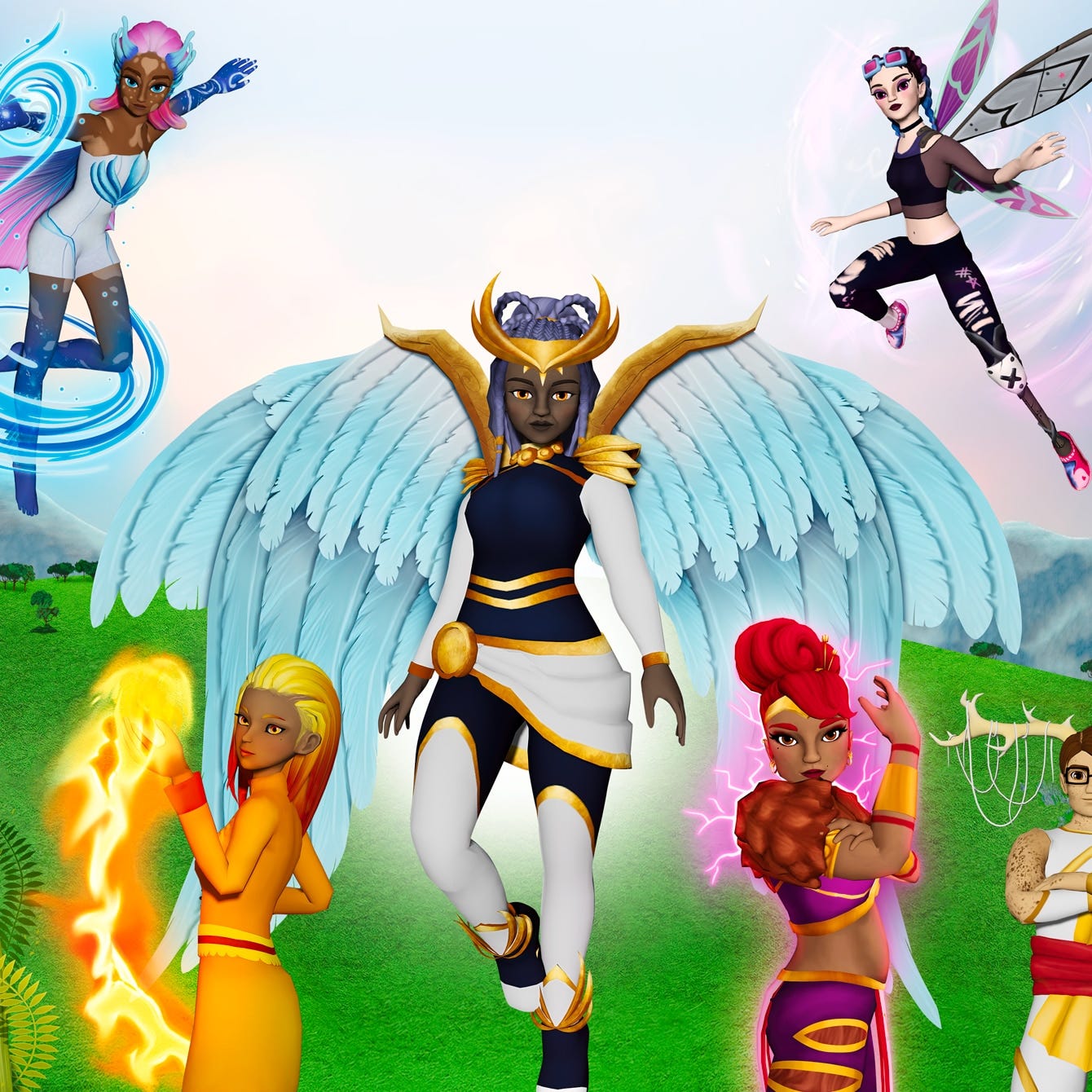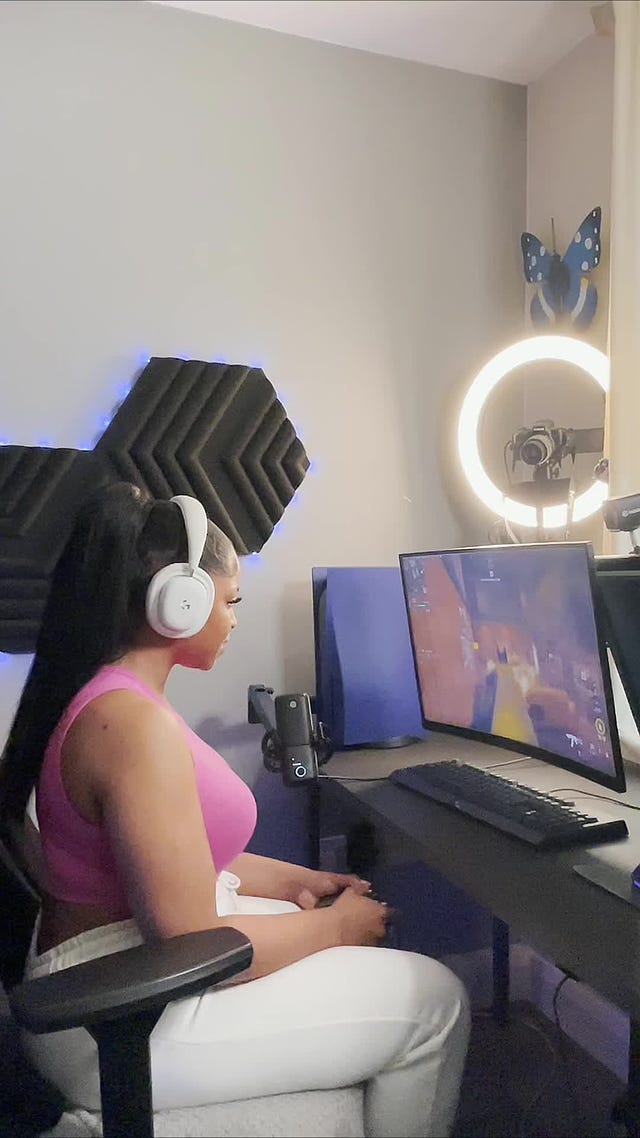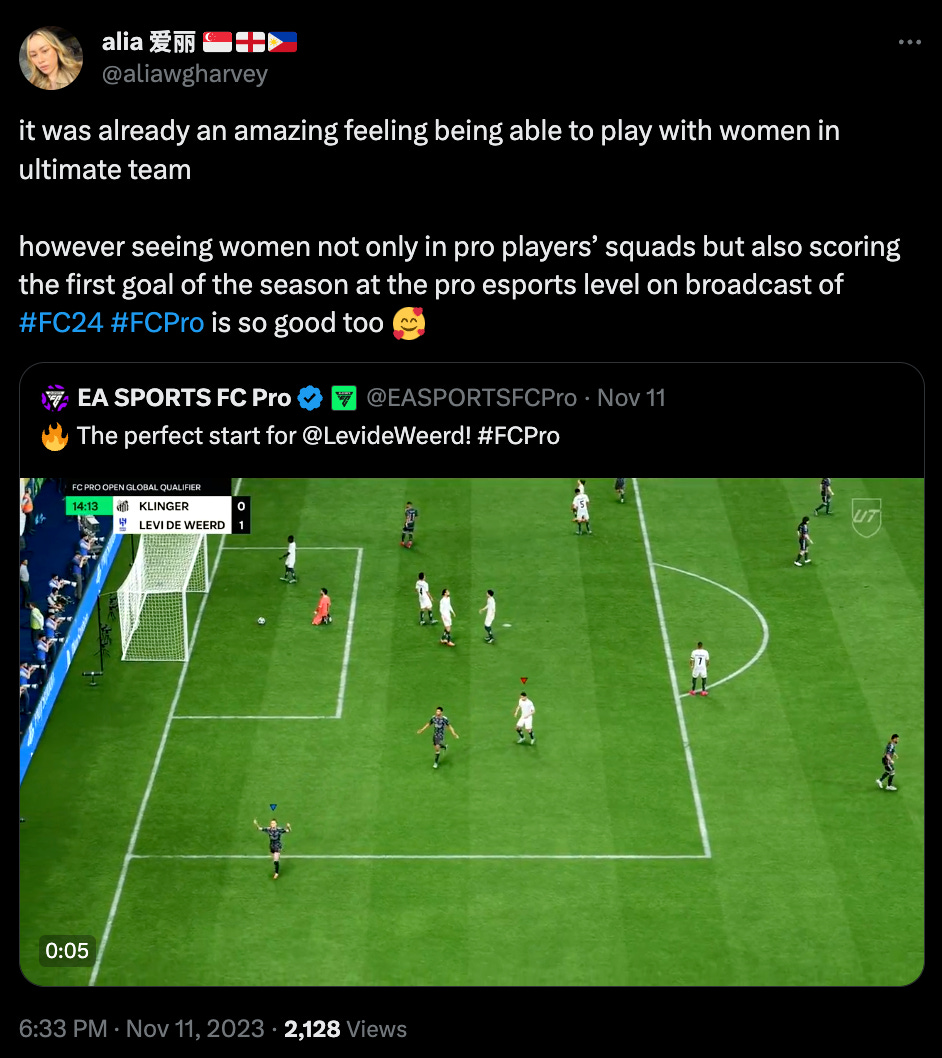Even the non-gamers among us don’t need to be told that the industry is a beast, one worth £200 billion worldwide. (Sure, this week major game makers like Epic Games, Ubisoft Montreal and Niantic have announced layoffs after huge hiring surges during Covid, but that’s only because pandemic levels of gaming couldn’t possibly be sustained now that we’re actually allowed out of our houses again). The fact’s remain true: gaming is big business, one that has a huge impact on players' lives and worldview. And it’s here to stay.
With that power comes a lot of responsibility, but, so far, the industry is yet to step up to the plate. Despite breakthrough innovations from gamemakers and a host of critically acclaimed releases this year, the industry remains hostile to minority players and unrepresentative of its hugely diverse consumerbase.
It’s time for an intervention, says avid gamer and Gauchoworld editor Seun Areoye. Read on as he breaks down all you need to know about gaming’s toxic traits, the challenges it faces, and the glimmers of hope on horizon.
Growing pains
I’m still a nerd. I was a nerd when I was playing FIFA at six, Call of Duty at 10, World of Warcraft at 11. Back then, it felt like all my nerdy mates (yes, some were virtual) and I were the only ones playing games. Oh, how that has changed.
The gaming industry is now worth over £200bn, and yet it still feels like a breeding ground for a LOT that is wrong with society, owing to the inability to represent anything other than an often male, often American, often white gamer.
Brands in the gaming space can’t even hide behind the assumption that there aren’t enough non-male gamers in order to offer a more inclusive view of the gaming world: a June 2023 study by Statista reveals that 47% of gamers in the UK are in fact female. There are a plethora of communities that celebrate and encourage minorities in the gaming scene (Black Girl Gamers, NNESAGA to name a couple), and there’s no denying that presence.
Issue one is gaming culture. The anonymity that toxic gamers are protected by means they’re able to spew damaging rhetoric without the real life consequences that can often act as a deterrent from such things. The gaming space becomes somewhere that isn’t safe or comfortable for those who aren’t the quasi-majority.
When tuned into one of my favourite streamers TiannaMercedes, I often see men regurgitating archaic rhetorics, usually upset that she’s a better gamer than them. For every Tianna, who’s probably developed some immunity to gender based trolling, there’s another person, tired of the constant unwarranted abuse, who may turn off their console and never turn it back on.
Then there’s the companies themselves. Take the Activision Blizzard scandal last year, following its suing for poor workplace culture the year prior. Or Kick, which has presented itself as a more inclusive streaming platform by rewarding gamers for their time spent streaming rather than the viewers they gain, which still endorses one of their ambassadors who has been involved in an array of controversies, many surrounding misogyny and homophobia.
Where DEI (Diversity, Equity and Inclusion) is a massive consideration in most sectors, gaming seems to slip under the radar, not really having to address its rotten core that’s preventing it from being the truly inclusive space it has the potential to be. Almost 70% of the workforce in gaming is still male, with only 2% identifying as non-binary, and there needs to be a balance shift if we’re expecting mindsets to shift.
The path forward
There’s no other way to say this: We MUST do better. To eradicate the behaviours of those who are against an inclusive gaming space, a mindset shift has to happen. More often than not, tokenism takes precedence over real action. Though it’s not always bad: normalising what should’ve never been abnormal in the first place can prompt the mindset shifts that we need to happen.
A positive example of this comes from EA, who, for the first time in its 14 year history, included women in its most popular (and most profitable) game mode, Ultimate Team - alongside the men. I remember seeing the initial reaction when scrolling through tweets (or are they called Xs now?), people making jokes, trolling, overly scrutinising mistakes made by women players. But fast forward a few months and I recall coming across a tweet mentioning how the trolls seem a lot quieter these days, with people just wanting the best players in their team, whether women or men. Although it’s taken some time, EA has stood their ground and I truly believe they’ve made a step in the right direction, creating the foundations of long term positive change.
In-game change = real world change
We can exact positive change in the real-world too. There are certain cult heroes who have made their name from this game mode, gaining an increased level of superstardom, even though their footballing ability may not have warranted it. Reddit will tell you all about the likes of Victor Ibarbo, Seydou Doumbia, Adebayo Akinfenwa, all players who will bring the smile on the faces of anybody who played Ultimate Team in its early days, or watched KSI, who was probably the biggest Akinfenwa fan over a decade ago
The inflammatory language in this Akinfenwa video isn’t acceptable, but the fact there are people who returned to that video after Akinfenwa announced his retirement says a lot about how IRL reputations of footballers can be massively boosted by their reputations within URL. I envisage the same happening within the women’s game, especially as it undergoes exponential growth away from the virtual game (UEFA estimates that European women's football could see a sixfold increase in commercial value over the next decade). At the minimum, after playing so many games you become familiar with certain players, their clubs and their positions, learning about the women’s game through the game you already play.
The same way KSI came up through the popularisation of certain players, we could see this inclusion create room for the growth of female fandoms, and we could see female equivalents of the Speeds, Kai Cenats and Ninjas of the worlds, without there being this expectation that they’ll pander to weird fetish culture that’s been created by the oversexualisation of female characters in games. Take Lara Croft and Chun Li as the most recognisable examples of this hypersexualisation.
It feels like as a minority of any sort, there’s always an uphill battle, a certain amount of ‘thick skin’ you have to have to truly feel like you belong in the gaming space. Rhianna Pratchett, who's the writer responsible for the Lara Croft reboot a decade ago, spoke about never warming to the Tomb Raider franchise as a youngster due to its heavy male gaze. We’ve got a long way to go, and it begins with creating a more diverse workforce.
But it’s slowly changing, and with the actions of EA in their latest game, Kick with their fresh take on streaming, Alhan Gençay’s P45 giving gaming a new and ‘cool’ look by involving the likes of Rappers like Headie One and entertainers like Harry Pinero and much much more, I do believe we’ll continue to move closer and closer to an inclusive gaming space. Though we must ask why it’s taken so long to appoint a black woman at this level within the industry, Microsoft’s appointment of Sarah Bond as President of XBOX is another positive reflection of forthcoming change.
How physical spaces can break us free
There’s one thing that’s especially hard to budge: the keyboard warriors. And often, the gaming space is their safe haven. But whilst some people might be too far gone, there’s a large majority of gamers who are still young and extremely impressionable. The answer? To make sure they don’t become isolated from the real world.
For me, I remember being gathered in a physical space - that physical space being on the front of my house as we brought our 19 inch TV out to play all day long - with my neighbours, and I think physical gaming activations certainly need to make their way back into the fold, as a popular way to play games.
Seeing spaces like the Virgin Media Gamepad in the O2, the Red Bull Gaming Sphere in Shoreditch and even Platform which is based by Moorgate are evidence of the appetite for these physical spaces, as well as the commercial opportunity it presents.
Whilst the first two aforementioned examples certainly seem more focused on engaging a competitive audience, Platform creates a world where both the casual and competitive can get into games in the same physical space. Where the gaming space has certainly moved away from being an exclusively IRL experience, bringing that back in a multitude of ways will only spell positively for the wider gaming community - a tangible reminder that you’re never truly alone. Although they shouldn’t be necessary, could we see women’s only spaces for gaming, allowing physical communities to be built without the anxieties that some women who game may have?
With the internet also being this largely unregulated space, having an IRL community can often serve as an effective form of policing, separating what’s deemed ‘acceptable’ on the internet against what’s actually acceptable in real life. For a group that’s largely impressionable, seeing the appropriate ways to behave in your face, rather than the toxicity that’s accessible all over the internet, could prove vital in creating a new generation of positive gamers, which’ll only contribute to increased participation numbers.
The upshot? It really shouldn’t be this complicated. Here are five ways we can create a better gaming space, both as gamers and as brands.
Don’t be a d*ck. This applies when playing games, or just going about your life in general. It’s not fun for anybody and we all have a duty to stamp out that behaviour, starting with the person in the mirror
Conversations in boardrooms influence conversations online. If everybody isn’t represented in the boardroom, then they’ll feel the wrath of that on Reddit, Twitter and other social platforms
Yes digital is great, but IRL cannot be forgotten. Physical communities are still thriving, and there’s still so much room for them to grow, besides the occasional brand activation
Pretty much everyone plays games, to communicate to the most casual gamers, explore gaming through lenses they’re already familiar with: their favourite musicians, sportspeople, influencers. But just don’t force the crossover, as authentic moments will always prove successful over stiff collaborations
Doing good and making bank seem to have a positive correlation, I won’t be surprised if EA’s Ultimate Team makes even more money this year, after becoming a more inclusive game mode. People want to spend their money where their values align, so having a toxic workplace/mindset whilst making a good game/providing good content is going to cause more harm to your pockets than you might think
That’s all for today!
What changes would you like to see to the gaming industry? As always, let us know in the comments below, or catch us over on Instagram.
Until next time!
Words: Seun Areoye
Editor: Letty Cole









